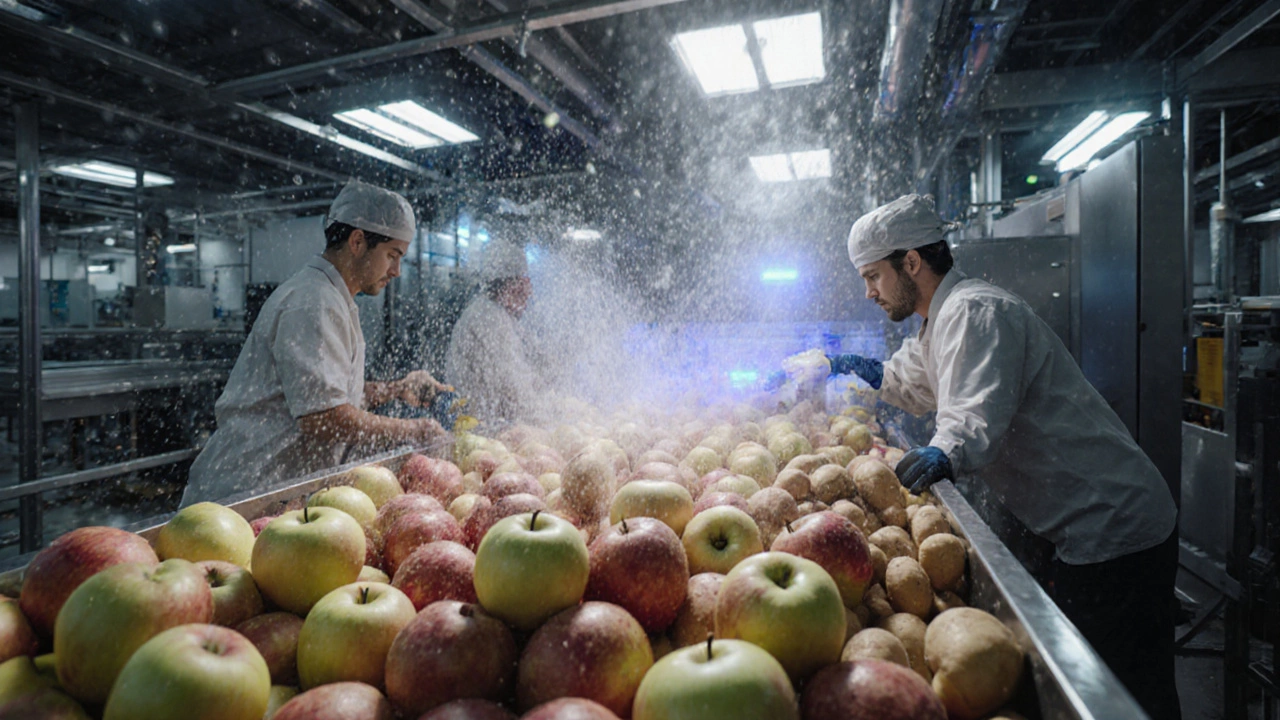Food Handling: Simple Steps to Keep Your Products Safe
Did you know that about one in six people gets sick from food each year? In a factory setting that number can jump fast if a single mistake spreads. The good news is you don’t need a PhD to stop it. A few clear habits can protect your workers, your customers, and your brand.
Why Proper Food Handling Matters in Manufacturing
First, think about the cost of a recall. It’s not just the money you lose on the bad batch; you also lose trust, face legal trouble, and waste time fixing the mistake. Second, clean processes make the plant run smoother. When equipment stays clean, you spend less time repairing and more time producing. Finally, good handling keeps your staff healthy. Less sick days means higher productivity and a happier workplace.
Top 5 Everyday Food Handling Practices
1. Wash hands like you mean it. Use warm water, soap, and scrub for at least 20 seconds. If you’re handling ready‑to‑eat items, use a sanitizer after washing. Hand wipes are handy, but they’re not a replacement for real washing.
2. Keep raw and cooked separate. Store raw ingredients on the bottom shelf so juices can’t drip onto anything ready to eat. Use color‑coded containers – red for raw meat, green for vegetables – and stick to the code.
3. Follow the temperature rule. Cold foods stay below 5°C (41°F) and hot foods stay above 60°C (140°F). Use a quick‑read thermometer and check every shift. If something falls out of range, move it to the proper zone or discard it.
4. Clean equipment right after use. When a machine stops, wipe it down before the next batch starts. A spray bottle with a food‑grade sanitizer works well, but don’t forget to rinse if the sanitizer leaves a residue.
5. Train the team and refresh often. A short 15‑minute refresher each month beats an annual lecture. Use real‑life examples from your own floor – people remember a story about a spill that caused a halt better than a list of rules.
Putting these habits into a routine doesn’t have to be a hassle. Put up simple posters at hand‑washing stations, label storage areas, and assign a “clean‑up champion” for each shift. When everyone sees the same message every day, the habits stick.
Remember, food safety isn’t a one‑time project. It’s a daily checklist that protects your bottom line and the people who rely on your products. Start with these five steps, watch the improvements, and keep adding small tweaks. Your factory will run smoother, your customers will stay safer, and you’ll avoid the nightmare of a recall.

What Are the Basic Operations of Food Processing?
Learn the core steps of food processing-from cleaning and thermal treatment to preservation and packaging-that make modern food safe, shelf-stable, and widely available. Understand how each stage protects health and ensures quality.

What Does DPU Stand For in Food Processing Units?
DPU stands for 'Decentralized Processing Unit' in the context of food processing. These units play a crucial role in managing the food supply chain by processing food ingredients closer to their source. With DPUs, food producers can ensure higher quality and fresh products, providing more sustainable and cost-effective solutions. This article explores their role, advantages, and interesting aspects in the food processing world. Understanding DPUs helps anyone interested in the modern food industry and its future.

